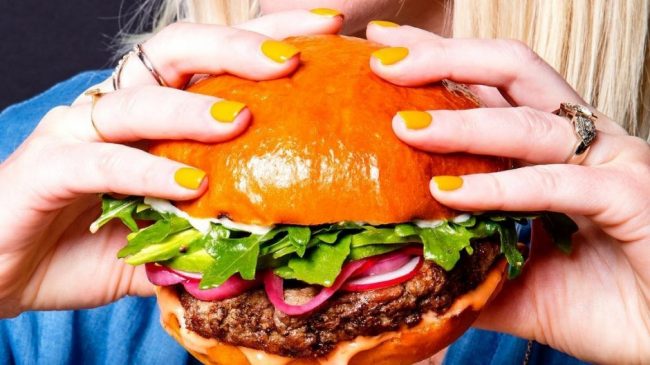“Imagine eating fish … that isn’t really fish.”
A recent press report revealed that Impossible Foods, creators of the innovative plant based “Impossible Burger” are potentially venturing into a new realm of vegan alternatives; this time with the hopes to replicate fish with plant based ingredients.
Biochemist and CEO Pat Brown, said that the company is working to eliminate all animals from methods of food production by 2035. “We are working on producing all foods that we get from animals.”
As much as vegan food is high in demand, achieving this goal would be no mean feat. But is it Impossible?

When compared to animal agriculture, the impact of production for Impossible Burger is of little concern to the environment as it uses about 75% less water, generating approximately 87% fewer greenhouse gases and requiring around 95% less land than conventional ground beef from cows. Furthermore, the patty is produced without hormones, antibiotics, cholesterol, saturated fat or artificial flavors which means it can hugely benefit the health of anyone looking to replace traditional meat with its plant based cousin.
There has also been speculation that this veggie burger could solve food supply issues in Asia:
“All across Asia people are becoming more and more inclined to choose western style meals. This means that there’s an increased interest in meat and dairy, despite the fact that plant-based foods require less land for the same amount of calories. As such, Asian countries rely heavily on imported goods to sustain their appetites.”
On this, Temasek who are on the board of investors said ‘We look for opportunities to support growth across our portfolio…This includes technology pioneers and disruptors, and in the case of Impossible Foods — food security.‘

Impossible Foods aren’t the only company using innovative technology to solve food production problems though. ‘Rivals’ at Beyond Meat are also paving the way for more sustainable vegan meats and have created a wave across the US recently with their rapid increase in distribution.
However, until lately there has been less interest in producing fish alternatives. It is likely this is due in part to many health organisations promoting the consumption of fish for their omega 3 content, whilst the dangers that eating fish poses to health are not widely known.
Impossible Foods have patented the technology to extract heme, an iron-containing molecule found in soybeans, to create their “bleeding” Impossible Burger. This same iron is also found in bluefin tuna. “We are looking at replacing all products derived from animals and fish is on the list, although somewhat far out,” spokeswoman Jessica Appelgren told Undercurrent News. Impossible Foods aren’t the only company who have announced that they hope to soon provide fish alternatives. Finless Foods are currently working on lab grown fish and award winning company Good Catch are soon to release their vegan alternative to tuna.

Pat Brown’s aim to eliminate animals from food production by 2035 may seem a little far fetched, but he’s not the only person who believes it’s a possibility. Richard Branson has predicted that the world will be meat-free within the next 30 years. In addition to this, many studies point towards the fact that the world is more inclined to eat meat-free. Vegan food sales have risen by 8.1% reaching a massive $3.1 billion in growth in the past year alone.
If these consumer trends continue, Brown’s hopes for 2035 may be entirely possible.


